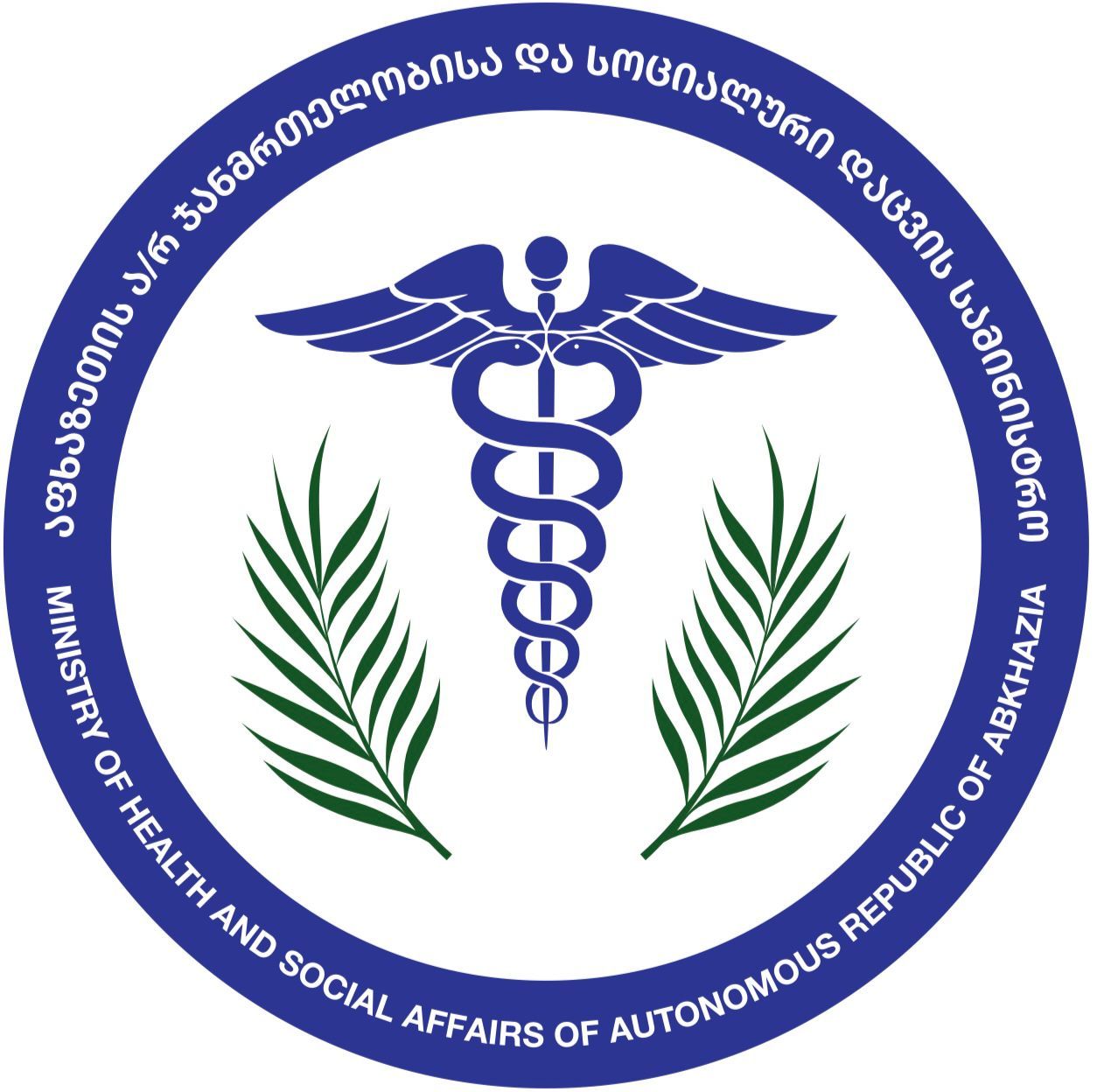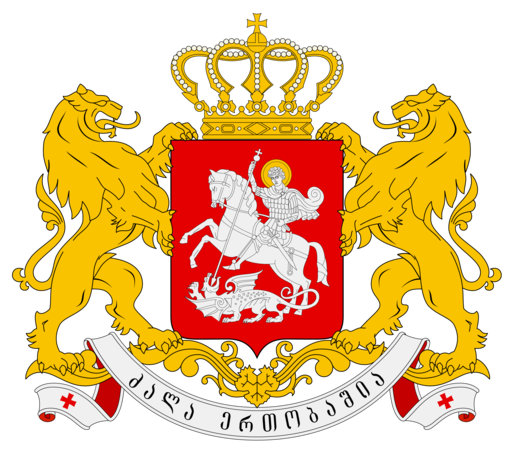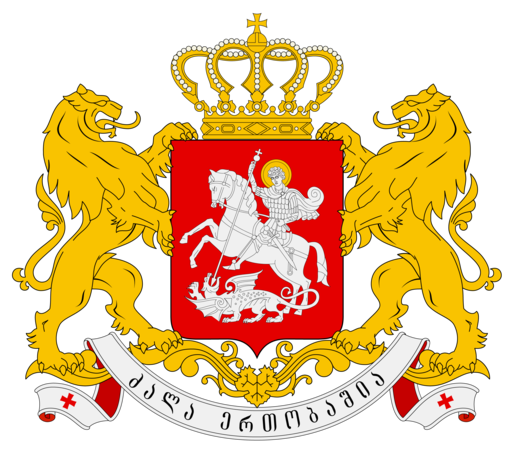გიორგი მერაბიშვილი,
ისტორიის მეცნიერებათა კანდიდატი,
სოხუმის სახელმწიფო უნივერსიტეტი.
/ინგლისურ ენაზე/
Giorgi Merabishvili, Ph.D.
Sokhumi State University
"The issue of contemporary separatism in Caucasus and its outcome on Georgia, Abkhazia; new approaches to conflict peaceful resolution".
Already 20 years have passed since the start of the Georgian-Abkhazian war in 1992. The conflict has persisted to this day and brings with it insecurity, deep mistrust, long-term displacement and serious constraints on growth and development.
Georgian-Abkhazian conflict refers to the ethnic conflict between Georgians and Abkhazians and in a broader sense can be considered as a part of the geopolitical conflict in the Caucasus region remaining unresolved. Such persisting "frozenness" restricts sustainable economic and social development as well as the establishment of free democratic civil societies.
As the Georgian historians note, the fact of Russian permanent imperial aspirations to tear off the North-West part of Georgia has become "the reason of history politisation and falsification of the historical past of Abkhazia and along to it of the whole Georgia. Namely, at the beginning of the 20th century, under the motto "Abkhazia is not Georgia" Apsua-Abkhazian political separatism as one of Russian imperialism varieties and its stronghold in Georgia was formed". (1)
During last twenty years several works in Russian and English languages have been published by Abkhazian historians: S. Lakoba, O. Bgazhba. V. Chirikba, M. Gunba, E. Ajinjal, D. Dbar, etc. "Unfortunately the authors, with the aim of "restoration of historic" rights pursued and served the illusory and rather dangerous political aims and not the scientific/research ones". The historiography is under a special attention and "protection" of the separatist regime as well as of the Russian political leadership. (ibid) In his book Prof. Z.Papaskiri notes: "The Abkhazs, who developed into an ethnic group in the territory they now occupy, essentially never developed outside common Georgian history and, along with their Georgian brothers, have been building a common Georgian statehood and Georgian Christian civilization" (2).
But, it is obvious, that Georgian historiography has not yet worked out united/common approach towards the main problem. The negative influence of the ex-Soviet historiography is not yet overcome in researching of such issues as ethno-political history of the Colkhis (Egrisi) Kingdom of the before the antique and especially antique periods, ethno genesis of the Georgian and Abkhazian people etc.Though, the views and opinions of the Georgian and Abkhazian historians on this stage are incompatible, as to our knowledge many Georgian historians are ready for collaboration with their Abkhazian colleagues (3).
During the war, the Abkhaz separatist side carried out a full scale ethnic cleansing campaign which resulted in thousands of killed and expulsed ethnic Georgians, thus becoming IDPs in their own country. Many of them left Georgia for good. Various separatist groups of North Caucasus /nominally still under Russian rule/ supported by Apsuan Diasporas in the Middle East and the USA were planning the creation of an Islamic republic in North Caucasus. (7) If they succeeded, the new state would be vitally interested in getting access to the sea probably by annexing Abkhazia as it would be an excellent opportunity for the landlocked North Caucasia. Russian tactics before and during the war, resulted in building up Chechen militants. Armed units of Chechen veterans of the Abkhazian war caused enormous casualties back to Russian federal troops during the wars in Chechnya (1995-96 and 1999). The war in Chechnya in its turn, led to the build-up of Islamic guerrilla and terrorist networks in Chechnya, Dagestan and other areas of the Russian Caucasus.
The primary mediator in the conflict, Russia had proven itself completely ineffectual. As a result the conflict resolution process came to a deadlock. The civilians suffered total absence of security guarantees and no real action was taken for prevention of human rights violations. The ethnic cleansing of Georgians has been recognized officially by the OSCE conventions of Lisbon, Budapest and Istanbul as well as in UN General Assembly (Resolution GA/10708) and series of resolutions were passed in the UN Security Council appealing for a cease-fire.
On November 4, 1994 Abkhazians adopted a new constitution and declared sovereignty. After the Parliamentary elections were held on November 23, 1996 but these were not recognized by Georgian government or the international community, as the elections was held after ethnic cleansing, when majority of pre-war population had fled Abkhazia. The de facto authorities organized a referendum on 3 October 1999 which approved the current constitution though more than half of the pre-war population had been expelled from Abkhazia and couldn't take part in voting.
The de jure Government of Abkhazia in exile, then the Council of Ministers of Abkhazia, left Abkhazia after the Russian-backed Abkhazian separatist forces and their allies from the Confederation of Mountain Peoples of Caucasus took control of the region's capital Sokhumi after heavy fighting on September 27, 1993. The Council of Ministers relocated to Georgia's capital Tbilisi, where it operates as a de jure, legitimate government for almost 20 years.
The Georgian Government promised not to use force and to resolve the problem only by diplomacy and political talks. The State Strategy for IDPs, "soft policy" plan of engagement through cooperation was developed but it already couldn't have appropriate effect. The separatist regimes and their supporters opposed any Georgian proposals on conflict resolution process. The Georgian government offered substantial autonomy to Abkhazia several times. However, both the Abkhaz government and the opposition refused any forms of union with Georgia. On August 26, 2008, the Russian Federation officially recognized both South Ossetia and Abkhazia as independent states. In response to Russia's recognition of Abkhazia and South Ossetia, Georgian government announced, that the country cut all diplomatic relations with Russia and that it left the Commonwealth of Independent States. Georgia also decried the further unlimited issuance of Russian passports in Abkhazia and subsequent payment of retirement pensions or other monetary benefits by Russia, as economic support of separatists by the Russian government. In 2008 Mr.Putin announced the doctrine of "asymmetric answer". (12) Nobody paid enough attention to this. If we look at the European or North-Atlantic security systems, there are strong disagreements between the key players: EU/USA and Russia, but despite this, the probability of a direct conflict is very low. "Asymmetric answer" means that the probability of conflict increases in a different region, in so-called ‘weak regions' like ours. Russia's main goal in the war was to stop Georgia's Euro-Atlantic aspirations, but they were unsuccessful, as Georgia had the Lisbon and Chicago summits' declarations. "The Russian Georgian war only increased Georgians' aspirations to join NATO, the latest opinion polls showed it was the same, at about 80% of the population." The current situation is very dangerous; there is another conflict glooming in the Caucasus as tension grows between Azerbaijan and Armenia (ibid).
Georgia supports peace, but actually, when talking about the conflicts in South Caucasus in general, there is one key player, and that is Russia, which is involved in different ways: in Georgia it is an occupant, and in Karabakh case it is a peacekeeper, but it is anyway a key player. Everyone understands that the Russian Federation is interested in maintaining control over the tensions, and it will do anything to use this because the South Caucasus is part of what Russia calls their privileged interest.
Georgia is not a post-Soviet country anymore; it is a democratic, Western-oriented society. Azerbaijan is one of the richest countries in the South Caucasus; it has enough resources and does not depend on Russia either. Some political analysts consider, that nowadays the only way Russia can exert control over the two countries is through conflict. Conflict resolution is also acute between Azerbaijan and Armenia. They are vitally interested in a peaceful resolution but Armenia is landlocked and enclosed, on the one side by Turkey, and on the other by Azerbaijan. Besides, there is a Russian military base in Gyumri (Armenia), and this base is Russia's mechanism for influencing and controlling conflict in the region. To solve the conflict in a peaceful way, first of all, there should be a common understanding that we are all on the same boat.
Recently, Russian soldiers have moved the de facto border with South Ossetia to 300 meters deep in Georgian villages of Ditsi and Dvani, which lie in a hilly area south west of Tskhinvali. Georgian Prime Minister Bidzina Ivanishvili made no "hard decisions" as he admitted, about facts developed in Tskhinvali. He said that problems should be resolved through diplomatic means, and enhanced supervision. Primary task is to help the locals; he also talked about the raising number of monitors and police on territory to protect citizens.
When asked, the Russian Deputy Foreign Minister Grigory Karasin, concerning these events stated that: "measures will be taken to study the latest developments on the administrative border". According to Special Representative of the Prime Minister Zurab Abashidze, it was agreed that these questions will be asked at Geneva meeting, because their format of meetings does not foresee detail examination of resembling issues. Moscow provides the breakaway republics with economic and military support. Their independence has been recognized by a handful of other countries as well. Most countries do not recognize Abkhazia or South Ossetia as independent states, but view them as part of Georgia. In one of his interviews Z.Abashidze recalled: "As early as 2005, when George W. Bush visited Tbilisi, he called on the government to attempt to thaw relations with Russia". (17)
Georgia's new government, elected in October 2012, announced that normalizing ties with Russia is among its top priorities. However, according to several analysts Moscow and Tbilisi would hardly restore their ties by the time Russia holds the 2014 Winter Olympics in the Black Sea resort of Sochi.
American well known scholar, Prof. Lincoln Mitchell, closely familiar with Georgia, its previous and present officials as well, made such comments in his article "New Georgia Cabinet Is A Change Of Style And Substance, at Foreign policy, on the new Georgian governmental team: "The style is different and that is just looking at these folks these are not saber-rattlers,..there have been some papers that reported this as a victory for Russia or a defeat of Georgia's Western /policy/. Not in the immediate future, no I don't. But I think there is room to reestablish those relations on a different footing. So, little things like, for example, the official policy of the Georgian government under Saakashvili was essentially that there are no people in South Ossetia and Abkhazia. They are simply doing exactly what Russia says. That this is a conflict between Tbilisi and Moscow, and that was really fruitless. That's why eight years after /Saakashvili/ coming to power; those regions are significantly further away from Georgia than they were when they started. Even after the war that remained true. So one thing is that maybe you try to take into consideration what the folks there are thinking, not treat them like some kind of independent state, but try to bring them in", (18) and advices to create some kinds of new relationships based on civil society ties, linkages to the West, so Abkhazians and Ossetians wouldn't be so heavily dependent on Russia.
As officially stated in its foreign policy Georgia will continue to prioritize integration into the EU and NATO, hoping to get a NATO MAP (Membership Action Plan) by 2014. The militaristic rhetoric, used by official Tbilisi in relations with Russia for so long, had gradually subsided and positive developments should lead to more trust between Moscow and Tbilisi.
As Georgian analyst Ar.Gegeshidze, points out, "undoubtedly, the case in point are those research findings and recommendations which are still of importance now. Most likely Georgia will have to tackle these problems for a long time and therefore the analysis of the success stories and failures in the past and familiarization with the ways and means of correcting the mistakes is a necessary precondition for effective policy design in the future" (19).
More importantly, however it is the new reality of the situation in Georgia following the last year Parliamentary elections that prompted a substantial reprocessing of the approaches to conflict resolution/reconciliation issues. The political aspects of conflict regulations in Abkhazia are linked to its humanitarian aspect; that is the returning of the IDPs to their native homes. IDPs are most vulnerable category of Georgian society and are completely engrossed by problems of survival. The low level of awareness of their rights still remains to be one of the most pressing problems and in most cases they can't defend their rights as this ability is correlated with the level of legal awareness. It should also be said about the refugees of Georgian origin from Abkhazia living abroad, mostly deprived of possibility to participate in the processes occurring in Georgia and being cut off from their native culture. This refers especially to young people and as a result their mentality changes, affection for the homeland and motivation for returning gradually wears off.
The foreign policy of the new Georgian government should move away from isolation towards greater regional inclusivity too, which is very important as well. Georgia State Minister for Reintegration Mr.P.Zakareishvili, sees no contradiction in trying to resume a dialogue with Russia and actively work on de-occupation of occupied regions of Georgia - Abkhazia and South Ossetia. He considers that it is necessary to make steps that are possible today, and not stand still, because it is impossible today to make major moves. "It is excluded that between Russia and Georgia, the Georgian and Abkhaz, Georgian and Ossetian sides have no issues that can be solved. But we always get hung up on issues that cannot be solved today, we beat our heads against the wall," and asks, "Is it possible, for example, to find common ground on the issue of North Caucasus?"(20). The other side should consider and analyze our option offers for conflict resolving. It is essential that under the new Central Government, the Supreme Council and the Government of the A/R of Abkhazia in exile, as temporary institutions should become political and legal lever for the IDPs, their voters in conflict resolution. Our peaceful messages should be interpreted correctly and delivered to the Abkhazian side. Obviously, in Sokhumi, they may be not ready for such proposals yet.
As to our point of view, the stable situation in Georgia in general and in Abkhazia in particular is quite important also for the following reasons: in the period of globalization any troubled spot on the surface of the planet may have global economic and political consequences. Georgia like the whole of the South Caucasus lies at the crossroads of the important routes connecting Europe, Asia, Middle East and Russia. Thus any instability in such area can influence some or all of the above mentioned four regions. And, its natural resources and relatively well developed infrastructure may make it potentially attractive for possible foreign investors as well.
As recently the newly elected Georgian President Giorgi Margvelashvili, in his interview to BBC, Russian service stated "We've got a rational approach to these issues, for their solution, it consists of several topics: first of all we'll keep working with our partners on non-recognition policy concerning these territories as of the in dependent states. It corresponds with the concept of twenty-first century. The concept, to which small countries should be secured and the integrity of their territories recognized by the whole world. Also, "We'll try to lower down the temperature and stabilize the existing negative phone in our relations with Moscow" (21).
Regarding the new approaches of the Georgian Government concerning the conflict peaceful solution, the acting chairman of the Government of the Autonomous Republic of Abkhazia, V.Kolbaia, says: "I can confirm that Mr. Ivanishivli seeks the ways to normalize relations with Russia. Georgia's main vector will still be the West with an emphasis on joining NATO. And it will not hamper the normalization of relations with Russia. We know a lot of countries that want to join NATO, but have not spoilt their relations with Russia. The world community recognized the independence of Kosovo. We have the potential, together with the international community to tackle this problem through dialogue with Russia. This issue wouldn't be solved immediately. Russian factor can't be neglected. We should offer the international community, such solution that would be acceptable to all parties" (22).
Many foreign analysts underline that Georgian central government's rhetoric has changed. Peaceful resolution of the problem is one of the main issues. This policy is more pragmatic and calculated on results. It must be more flexible and comprehensive. Priority is to find direct contacts with Abkhazians and begin continuous dialogue with them. We have no illusions that this process will be over quickly, but it is important that the results be effective in both Georgian and Abkhaz sides.
Giorgi Merabishvili, Ph.D.
Bibliography:
- J.Gamakharia, L.Akhaladze, M.Baramidze, S.Bakhia-Okruashvili, T.Beradze, L.Bitadze, D.Jojua, M.Gejua, I.Gelenava, T.Gvantseladze, B.Gogia, R.Khvistani, B.Khorava, G.Pkhakadze
Abkhazia, Assays from the History of Georgia, Tbilisi, 2012.
- Zurab Papaskiri, Abkhazia: Unfalsified History, (in Russian), Tbilisi, 2009. (p.536)
- J.Gamakharia,.. Abkhazia, Assays from the History of Georgia, Tbilisi, 2012
- Hewitt, B.G. Abkhazia: a problem of identity and ownership. Central Asian Survey, vol. 12
http://www.scribd.com/doc/74480148/Abkhazia-a-problem-of-identity-and-ownership-by-George-B-Hewitt - Ariel Cohen, Russian Imperialism: Development and Crisis
http://books.google.ge/books?id=Lvjw9K8zRwIC&pg=PR3&source=gbs_selected_pages&cad=3#v=onepage&q&f=false - Aves Jonathan. Georgia: From Chaos to Stability. RIIA, London, 1996.
http://abkhazeti.narod.ru/pages/1/133.html - Andersen, Andrew. "Russia Versus Georgia: One Undeclared War in the Caucasus." http://www.conflicts.rem33.com/images/Georgia/RUSSIA%20VERSUS%20GEORGIA.htm
- Developing the National Security Concept for Georgia. International Conference Proceedings, Tbilisi, 1-2 April 1996. CIPDD, Tbilisi, 1996.
- Garb Paula. Ethnicity, Alliance-Building, and the Limited Spread of Ethnic Conflict in the Caucasus. University of California/Irvine, January 1997, http://iseees.berkeley.edu/bps/publications/1997_01-conf.pdf
- Human Development Report: Georgia 1997. UNDP, Tbilisi, 1997.
- Lakoba Stanislav. Abkhazia is Abkhazia. October 15, 2008 http://www.abkhazworld.com/articles/conflict/22-abkhazia-is-abkhazia.pdf
- Tarkhan-Mouravi, Gia: The Georgian-Abkhazian Conflict in a Regional Context
http://pdc.ceu.hu/archive/00002157/01/IPS_Abkhaz_paper_jav.pdf - T.Pkhaladze, Lithuanian-Georgian relationship has institutionalized
http://www.lithuaniatribune.com/16768/lithuanian-georgian-relationship-has-institutionalized-%E2%80%93-pkhaladze-201216768/ - Valday Discussion Club, The voice of Russia, September 20, 2013,
http://voiceofrussia.com/news/2013_09_20/Putin-invites-McCain-to-Valdai-to-improve-his-knowledge-of-Russia-0007/ - The U.S. Takes "New Europe" for Granted at its Own Peril, by Helle C.Dale and Ariel Cohen, October 10, 2010, The Heritage Foundation, http://www.heritage.org/research/reports/2010/10/the-us-takes-new-europe-for-granted-at-its-own-peril
15.Georgian MFA, 7 November, 2013, 25th round of the Geneva International Discussions
http://www.mfa.gov.ge/print.php?gg=1&sec_id=30&info_id=16873&lang_id=ENG
- Zurab Abashidze, Prime-News, June 28, 2013
http://www.prime-news.ge/?p=111094&lang=en - Lincoln Mitchell, September 2, 2013, The Parliament, Georgia is not Ukraine and must be given a chance to prove it
http://www.theparliament.com/no-cache/latestnews/news-article/newsarticle/georgia-is-not-ukraine-and-must-be-given-the-chance-to-prove-it/ - Lincoln Mitchell, New Georgia Cabinet Is a Change of Style and Substance, November 13, 2013, 14.
http://www.rferl.org/content/interview-lincoln-mitchell-new-georgia-cabinet-change-of-style-and-substance/24733085.html - Archil Gegeshidze, elene Chomakhidze, Enhancing Human Security of Internally Displaced Persons in Georgia, Tbilisi, 2008.
- Paata Zakareishvili, Public Dialogue, 13, 11, 2013 The New Government of Georgia Is a Chance for Russia to Normalize Its Relations with Georgia http://publicdialogues.info/en/Paata%20Zakareishvili%3A%20The%20New%20Government%20of%20Georgia%20is%20a%20Chance%20for%20Russia%20to%20Normalize%20Its%20Relations%20with%20Georgia
- Giorgi Margvelashvili, BBC, Russian, Маргвелашвили: абхазы сами захотят жить в Грузии http://www.bbc.co.uk/russian/multimedia/2013/10/131031_georgia_margvelashvili_interview.shtml
- Vakhtang Kolbaia's comments on the so-called "Passportization" in Abkhazia, Nov. 01, 2013 http://abkhazia.gov.ge/index.php?lang_id=ENG&sec_id=87&info_id=1609








